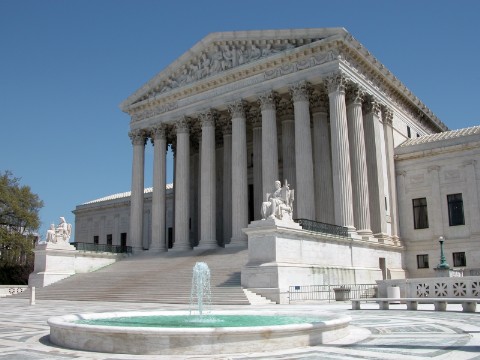SCOTUS: No Fast Track for Health Bill Case
The Supreme Court on Monday turned down Virginia’s request that it rule immediately on the constitutionality of the nation’s health-care overhaul.
The decision to reject Virginia Attorney General Ken Cuccinelli II’s request for expedited review, announced routinely without elaboration or noted dissent, is not surprising. The court rarely takes up issues that have not received a full review in the nation’s appeals courts.
Various challenges to the health-care law championed by the Obama administration and passed by the Democratic-controlled Congress in 2010 are proceeding rapidly. Hearings are scheduled for next month in the U.S. Court of Appeals for the 4th Circuit in Richmond, and two other appellate courts will address the issue in June.
Depending on the speed of the appeals courts and the legal process, the issue could arrive back at the court by next year, in the thick of the next presidential election.
Cuccinelli, a Republican elected in 2009, has been one of the most vocal opponents of the Patient Protection and Affordable Care Act, which has been a major issue in the nation’s political debate since its passage.
He challenged Congress’ authority to pass the so-called individual mandate, which requires nearly all Americans either be covered by their employer’s insurance or buy their own coverage.
Cuccinelli told the court that it should short-circuit the usual appeals process because of a “palpable consensus in this country that the question of PPACA’s constitutionality must be and will be decided in this court.”
But the Obama administration countered that the individual mandate requirement does not take effect until 2014, and that the justices would benefit from reviews of the law now underway in the appellate courts.
Lawsuits challenging the act have been filed around the country, and the results so far have fit a partisan pattern: Democratic-appointed judges have upheld the constitutionality of the individual mandate, Republican-appointed judges have struck it down. Virginia has one of each: a decision in support of the act in the eastern district, and against it in the western district.
The court of appeals in Richmond will consider both in its hearing May 10.


